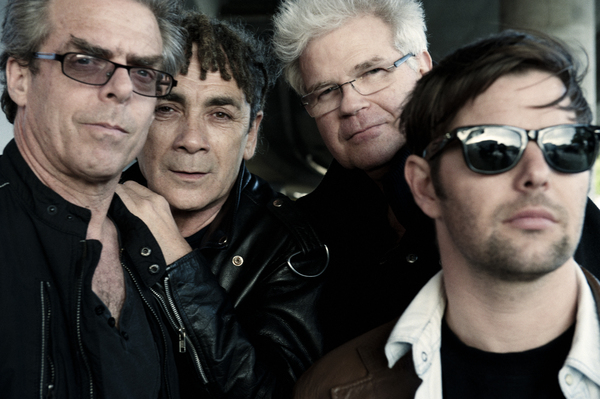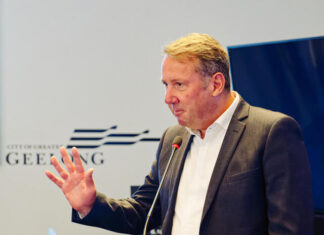By Luke Voogt
Iconic rockers Dragon will return to Geelong this month 40 years since April Sun in Cuba debuted on the Australian airwaves.
Original bassist Todd Hunter still remembered recording the track after the late Paul Hewson wrote it on the back porch of their share house.
“The band had had a bad car accident that was a very close call for Robert Taylor and Paul Hewson,” Hunter said.
“I distinctly remember looking around the studio and thinking we were a bunch of bedraggled, bandaged and neck-braced casualties recording this bright and shiny pop song.
“I think that more or less sums up the 70s for us.”
It was a turbulent decade for the ARIA hall of famers, with number one hits and heroin overdoses.
“Eventually, we grew out of it I think,” Hunter said.
Hunter and now-deceased brother Marc moved from New Zealand to Sydney in 1972 as relative unknowns.
“It was very hard because no one knew our songs,” he said. “It struck us how huge the place was.”
But when Hewson started writing those “bloody shiny pop songs everything started happening”.
The band has hit the road to celebrate the iconic song which Hunter said would live on long after he was gone.
“In 40 years that song’s been incredibly good to us. As everyone knows, life begins at 40, so who knows what is in store for April Sun in Cuba.”
The band churned through members during following decades, but still produced chart-toppers like the 1983 classic Rain.
“The ’80s had a very big revolving door policy,” Hunter said.
The band reformed with the current line-up in 2006, playing more than 1000 shows since.
“Our goal is to be a playing band,” Hunter said. “We’re happy to just play everywhere.”
Dragon will play all their hits at the Gateway Hotel on 27 October.
“Our contract with the public on stage is that if they turn up we’ll play everything that they know,” Hunter said.
“We used to go to Geelong a lot and we’d like to get that happening again. If anyone wants to come down and sing their heart out, they’re welcome.”
At age 66 Hunter was not slowing down.
“Weirdly, it’s the other way around,” he said.
“Playing live is the best – there’s some sort of thing that comes from the crowd that’s really invigorating.”
The band had welcomed a new generation of fans at its last decade of gigs.
“The old fans are at home watching TV,” Hunter said.
“When it’s really going off, everyone in the room is in the band. You’ve got to hit the chorus get people levitating.”
Whether at a festival for 30,000 people or an intimate pub show, the band planned to keep going, Hunter said.
“We don’t care where we play, as long as we keep playing.”









